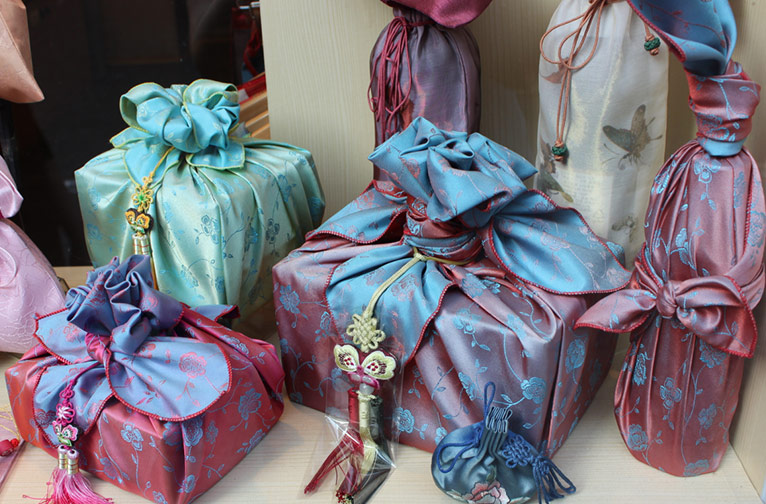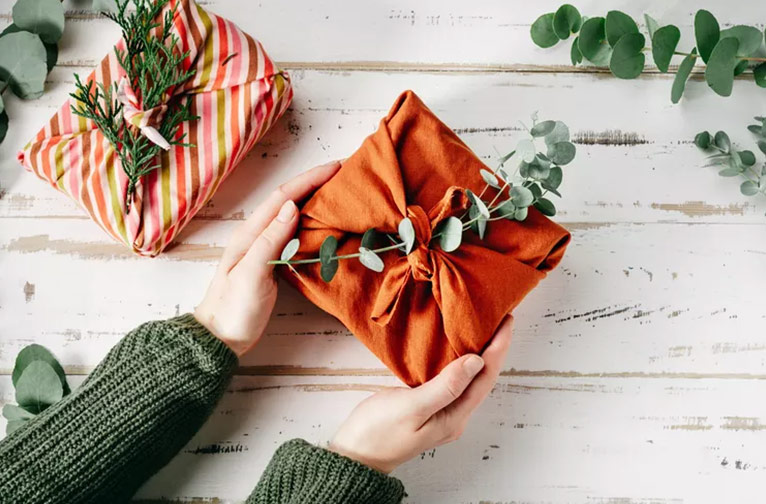Going sustainable this Diwali doesn’t at all mean the fun goes out of this pan-Indian festival. As it is so deeply embedded in our cultural ethos, solutions for all the key points that make the ‘Festival of Lights’ so special are kicking in to navigate the pitfalls of increasing Diwali’s carbon footprint.
Decadent sweets and ear-blasting patakas, chemically-infused colours for rangolis and gifts wrapped in inorganic packaging, energy-guzzling fairy lights and are so intrinsic to Diwali celebrations, who would have thought they also mess up our environment— and are also detrimental to our health?
As the round of card parties and get-togethers with family and friends gathers momentum in the run-up to Diwali, how about rejigging your celebrations in this era of climate change and its concerns, to get you off the guilt-trip?
You can still preserve the fun and culture of Diwali — where you celebrate the triumph of light over darkness and good over evil. You can also celebrate the efforts now being made to create a harmonious Planet Earth by going the eco-friendly responsible way.
‘Be good’ environmentally with these simple tips.
1. Illuminations
Ditch the energy-guzzling Chinese fairy lights and use the hand-painted clay diyas sourced from the local potter. For one, you’ll find them more eco-friendly, with the flame being charged by mustard oil of ghee— less polluting, and secondly, also important, you will be ‘giving back’ in your own small way to their economy.
Non-toxic candles are now also available in the market. Pick up biodegradable candles made of beeswax or soy which are a more eco-conscious option.
For lighting the greater area of your home go for LED lights which are not only energy efficient they don’t produce harmful emissions.
2. Rangoli
Creating those beautifully hand-drawn auspicious rangolis is such a fun thing for the family. But instead of using non-biodegradable synthetic colours, which are bad for you and the environment, choose more organic options. Look no further than your kitchen or garden for eco-friendly rangoli materials such as coloured rice/ powder, pulses and spices, flowers and foliage — to welcome Lakshmi the goddess of wealth and prosperity, and your guests to your home.
3. Say no to plastic
Avoid decorative items that generate toxins in the air. Choose biodegradable materials or organic items that can be reused repeatedly. Use incense sticks and dhoops with natural ingredients and scents.
4. ‘Bombastic’ firecrackers
The ban on manufacturing, storage and selling of firecrackers, including delivery through online marketing platforms, is aimed at combating air pollution. ‘Bombs’, a nasty-ear splitting part of the firecracker brigade, not only explode toxins in the air, they also create noise pollution. Imagine the impact they have on your pets!
That said, there are still those amongst us for whom Angel shower anaars, phuljharis (parklers) and strings of patakas are an intrinsic part of the Diwali fun— so they find it hard to follow the rules.
Green crackers are a greener solution to regular fireworks as they reduce emissions, especially particulate matter and noise pollution. Green crackers are considerably less harmful as they don’t have substances like aluminum, barium, and potassium nitrate. Barium, for example, is a metal oxide that not only pollutes the air it also causes quite a bit of noise when the conventional firecracker is lit.
Created by the Council for Scientific and Industrial Research these fireworks produce 30% less pollution; they also absorb dust as green crackers produce water vapour when burnt. Even their noise factor is far less, with decibels ranging from 110-125 as against the usual 160 from a regular fire cracker.
Identifying green crackers in the market is no rocket science. Look for the distinctive green colour logo of CSIR-NEERI and PESO and a Quick Response (QR) code
Authorised shops stock green crackers available in three categories which include: SWAS?(Safe Water Releaser) which releases water vapour into the atmosphere to reduce dust; it does not contain sulphur or potassium nitrate, and emits 30% less particulate matter; STAR (Safe Thermite Cracker) also has no potassium nitrate or sulphur; it also emits less particulate matter and reduces sound intensity; SAFAL has the least amount of aluminium and is rich in magnesium. It’s less noisy than conventional firecrackers.
You can go a step further in ‘going green’ and celebrating Diwali with the novel “Seed Crackers”.
These, quite uniquely, are ‘seed bombs’, which when chucked in earth, blossom into plants. All you need to do beforehand is soak these crackers for an hour or two and then?sow them in wet mud. Voila! No Noise! And silently those seedlings will bloom into lovely plants.
5. Save Paper
The old -fashioned trend of sending printed Diwali cards may be a dying art, with so much nostalgia attached to it. However, a digital version does the job as well and is certainly more eco-friendly.
6. Go green with gifts
Gifting is an intrinsic ritual for Diwali. Instead of buying presents from stores, you can make it really personal with homemade treats like cookies, jams and chutneys.
Stuff your gift hampers with dry fruits, nuts, snacks, organic teas and coffees, exotic fruits
Add the personal touch with beautifully hand-embroidered bed and table linens, towels, and a hand-painted coaster, which will really be appreciated.
Browse the markets for recycled craft gift items that reduce waste and add a personal touch to your celebrations.
Gift a plant. It’s the long and easy way to keep those happy Diwali memories alive.
7. Diwali Declutter in a soul-stirring way
Giving of alms and helping the poor and needy is intrinsic to Indian culture. When you’re cleaning up during your Diwali prep haul out those clothes and things you meant to use, but never got round to. Pile them up and donate them to the nearest charity. Lighten your heart by spreading the joy and delight of Diwali in a meaningful way amongst the poor and needy. Even leftover food from the festivities can be a treat for the hungry who often as not can be found gathered around local temples.


8. A Zero-waste, sustainable way to wrap
Choose organic packaging materials instead of paper for your gifts. A memorable way to make your statement more meaningful in a subtle manner for a cherished person in your life is to go the Korean or Japanese way. And you don’t even need to bring out the scotch tape. The knots do it all…
Japanese furoshiki gift wrapping—wrapping gifts in reusable fabric goes back to Japan’s Edo Period.
The Korean Bojagi, the luxurious, eco-friendly silk style gift wrap cloth is a beautiful, luxurious way to present your gifts. Bojagi is a thin cloth cut in a square. In Korea, Bojagi has been used since ancient times to wrap something beautifully with various knots for gifts. Wrap the item in white cloth first and then fold it over with Bojagi. Have fun learning to tie those intricate knots!
Originally these were commissioned by the royal family and created by expert Bojagi craftspeople and artisans.
Like the Japanese furoshiki wraps, these beautiful wrapping cloths are now readily available on-line. What’s great is that these wrapping cloths are reusable and can even be used as decorative items in your home!
If you are on a tight budget, you can make your own wraps by reusing scraps of silk or cotton; scarves do the job quite well! Look for a piece of cloth that’s neither too thick or too thin, and is soft and pliable enough to make a knot. For a larger gift you might find a pretty, vintage tablecloth can master the job quite well.
9.Waste Management after the Festivities
Attempts to reduce the use of plastic-finished, non-recyclable wrapping paper are still in a nascent stage. We must make a more concerted effort to salvage the situation of these discards in the aftermath of Diwali. Round up the family to help segregate the trash. Tip your regular neighbourhood garbage disposal guy generously.